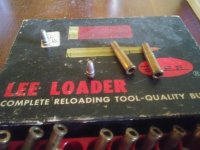Number One Tip, do NOT try to "go cheap". Purchase the cheapest powder scale on the market and you will end up purchasing another, and more expensive as soon as you discover the flaws in that cheap scale.
To start out I would suggest going with RCBS Equipment. A Rock Crusher press is an excellent and durable single stage press that can serve you well for 30 years or more. Same for the RCBS Powder measures and scales. BTW, I recommend the Competition powder measure, it's not cheap but it is well made and very easy to set up.
BTW volume based powder measures will have a variation in the thrown charges and that variation is a product of the metering quality of the powder being used. Large granule flake or extruded powders meter poorly and can show a variation of +/- 1/2 grain or more. With poor metering powders an automated electronic scale can be quite useful but a less expensive option is to just weigh each charge thrown and use a trickler to get the charge weight perfect.
As for load manuals, you never can have too many. I have the Speer, Lyman, and Lee manuals on hand. Lots of interesting and informative information in these manuals well worth studying.
So to sum up, you need a Press, Powder Measure, and Accurate Scale plus load manuals. Then you will need Dies for your specific calibers. BTW, my Dies are either RCBS or Lee because the cost/value for these brans is excellent.

